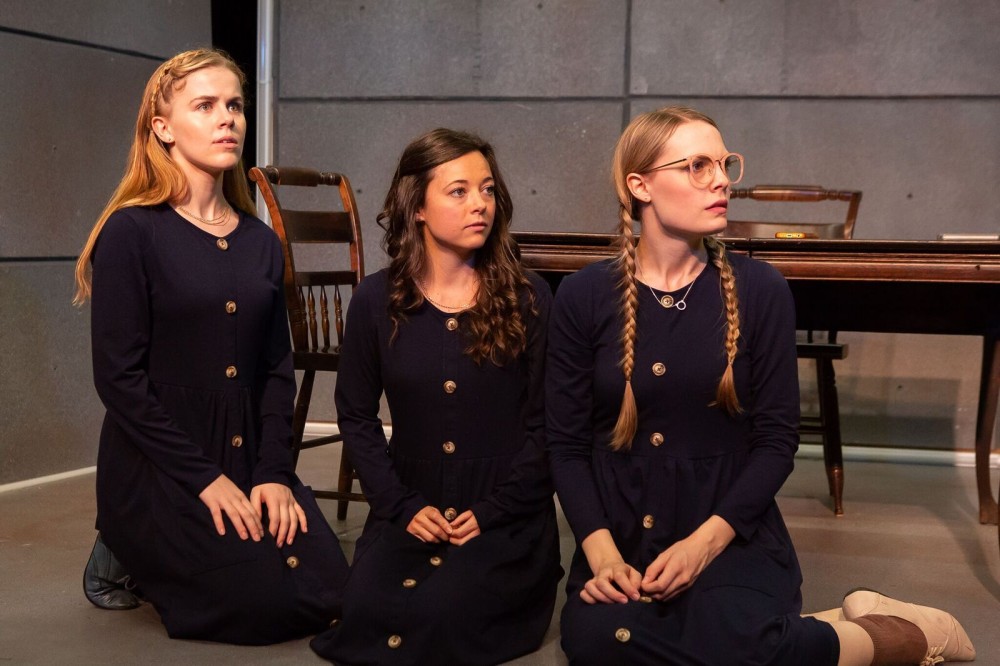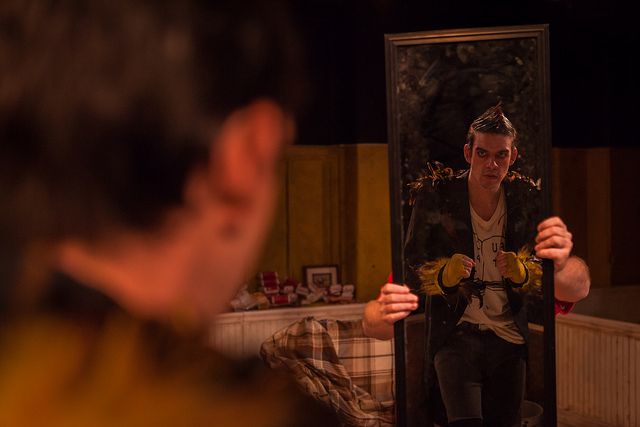“Dance Like a Butterfly, Sting Like a Bee” – Muhammad Ali
by: Sandi Durell
Based on some true facts, Will Power (playwright) used his creative imagination to pair the world’s greatest champion boxer Muhammad Ali (born Cassius Clay) with the first Hollywood black man, Stepin Fetchit (born Lincoln Perry) to ever receive a movie credit in the 1920s at Fox Films. All it took was finding a photo of the two of them in a bookstore!
The play is fraught with racial divide set in1965 while Ali trains and readies to defend his title won in his first battle as Cassius Clay against Sonny Liston. He is now a Muslim, having converted to the Nation of Islam taking on the name Muhammad Ali. He’s big brawly and “pretty as a girl” with a poetic bent.
Ali has summoned Fetchit who was close friends with the first black heavyweight champion Jack Johnston to find out the secret of his winning punch, the “anchor punch.”
Fetchit spent a lifetime as a black stereotype on screen, a lazy, shuffling Negro, amassing lots of money as he cleverly negotiated with the head of Fox Films. He describes his portrayal as a comic “shufflin’ coon,” as a ploy of sacrifice so that future black men could emerge. Says he: “I snuck in the back door, so you could walk in the front.” He is scorned by many of his own race. Ali cares nothing about any of that. He is focused on his own egocentric needs. And, ego – – – he has plenty of that as he blusters and preens.
Ali is attended by his Nation of Muslim bodyguard for protection, the very tough, street smart Brother Rashid (formidably played by John Earl Jelks) attempting to run the show but put in place by Ali. When Ali invites Fetchit to stay, sparks fly between Fetchit and Rashid.
Flashbacks provide the insight into Fetchit’s savvy dealing with cigar smoking William Fox (judiciously played by Richard Masur), the studio boss.
Ray Fisher winningly plays the dancing Ali who comes across as tough but, at the youthful age of 23, still needs assurances. He is physically striking and imposing as the boxing champ with a boyish charm but the inner churnings explode and fire throughout. At times the explosiveness seems excessive.
His wife, Sonji (Nikki J. James – Tony Winner ‘Book of Mormon’) who appears in long white Muslim dress, having converted to please her husband in his new religious persuasion as a “Black Muslim,” has a background as a party girl. After discussion with Fetchit, she decides to go back to sexy dressing (appearing in skin tight purple and high heels) and be who she really is despite the tension if brings to their marriage. James is feisty yet prudent in her portrayal as Sonji.
Fetchit, played by K. Todd Freeman, is remarkable adding just the right amounts of humiliation and comic timing as we look into his complicated character and persona presented on screen and off, the inner fury ever present.
The stage is a large white square reminiscent of a boxing ring, with minimal pieces (design by Riccardo Hernandez), the lighting bright white (Howell Binkley), the costumes (Paul Tazewell) in black, white and gray (other than the colorful dresses worn by James), all emphasizing the racial divide as the actors pummel each other within the ring.
Des McAnuff (who directed the original production at McCarter Theater, Princeton, NJ in 2010) keeps a watchful eye as he rigorously keeps up the pace in this illuminating and emotionally charged play while Peter Nigrini’s projections add various historical insights.
“Fetch Clay, Make Man” is good theater that might have an after-life when it completes its run at NY Theatre Workshop on October 13th. Running time: 2 hrs, 5 minutes with intermission. www.NYTW.org 79 East 4th St., NYC 212 460-5475
*Photos: Joan Marcus























